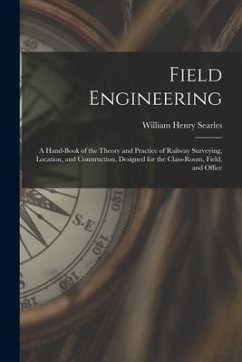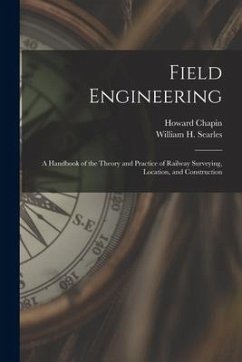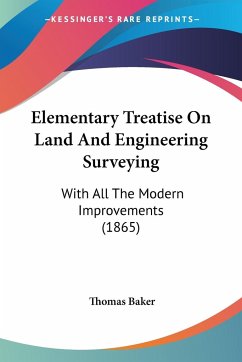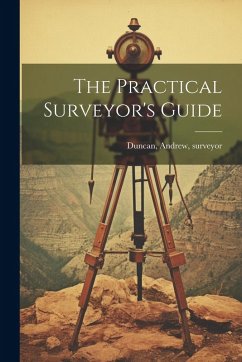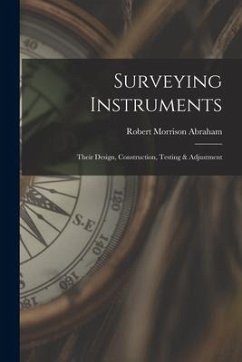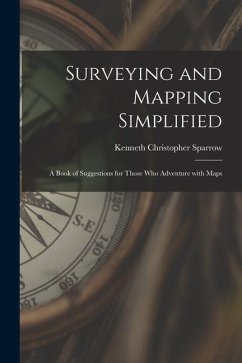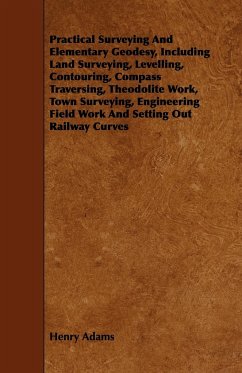
Practical Surveying and Elementary Geodesy, Including Land Surveying, Levelling, Contouring, Compass Traversing, Theodolite Work, Town Surveying, Engi
Versandkostenfrei!
Versandfertig in 1-2 Wochen
35,99 €
inkl. MwSt.
Weitere Ausgaben:

PAYBACK Punkte
18 °P sammeln!
This early work on surveying is both expensive and hard to find in its first edition. It contains a wealth of information on the methods and tools involved in practical surveying and elementary geodesy. This is a fascinating work and is thoroughly recommended for anyone with an interest in the science of surveying. Many of the earliest books, particularly those dating back to the 1900s and before, are now extremely scarce. We are republishing these classic works in affordable, high quality, modern editions, using the original text and artwork.



